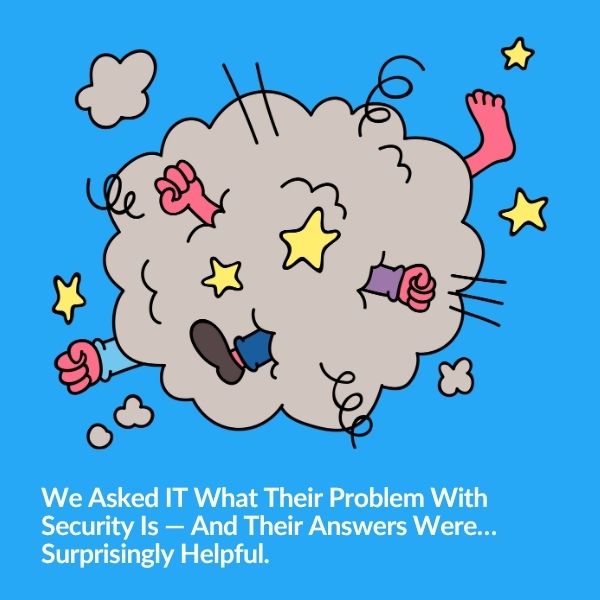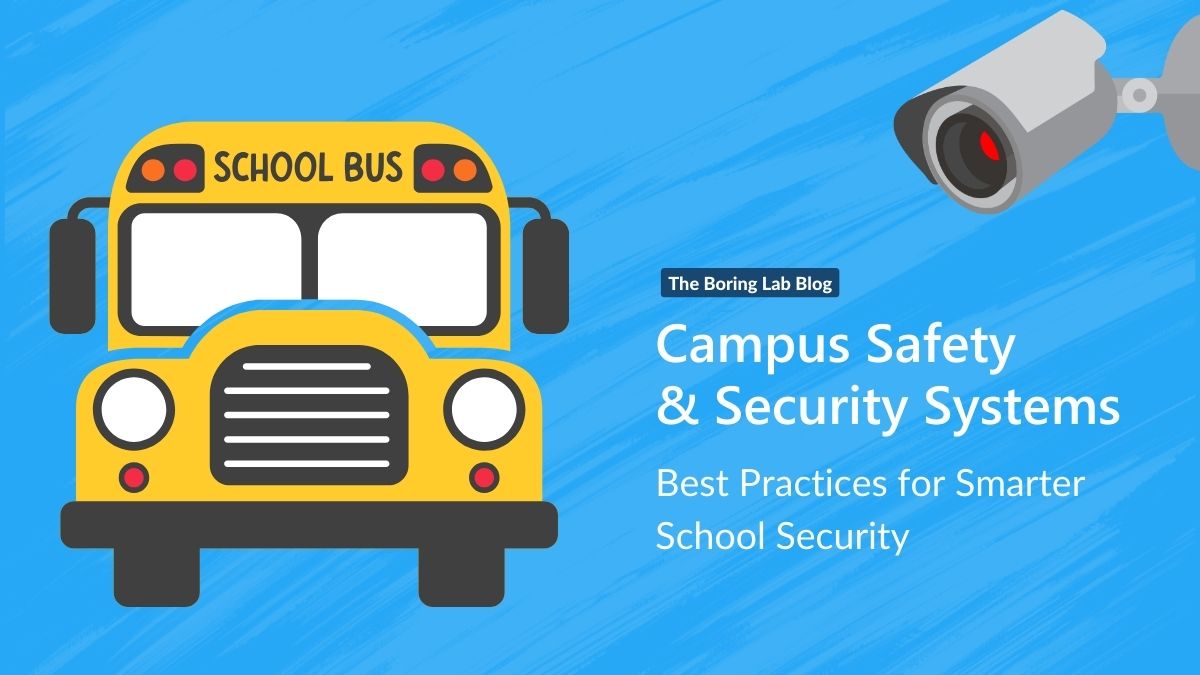
Security and IT often feel like they're speaking different languages—but they’re really solving the same problem from opposite ends. Based…
In case you haven’t noticed, AI is all the rage these days. You almost can’t escape it.
Movies like “Ex Machina” and “Her” have explored just how far this technology can go, and with businesses always looking for an edge over the competition, it’s no wonder that some are exploring its potential security benefits.
But, is AI ever going to take off in enterprise security? Do the benefits outweigh the risks?
Let’s take a look.
In this blog, we’ll cover three benefits and three concerns with implementing AI into your business security systems.
These elements can provide real, trackable security solutions in the future. But before going any further, let’s ground ourselves in what artificial intelligence is and how it currently functions in the security and surveillance industry.
The Oxford English Dictionary defines artificial intelligence as:
“The capacity of computers or other machines to exhibit or simulate intelligent behavior”
In the realm of security and surveillance, AI technology is being used to detect anomalies and abnormal behavior to prevent crimes, theft, and incidents from occurring in a variety of industries. The technology provides intelligent video analytics to surveillance systems that just isn’t possible with your standard surveillance camera.
It’s like adding a team of security nerds to your camera feeds and telling them what footage is relevant and what’s not.
If we look at the ‘old-fashioned’ surveillance model, where real, human security operators were responsible for reviewing all footage and finding incidents, what would we see?
Well, for one, no human is perfect, especially when faced with an endlessly boring and monotonous task. Which is why, prior to intelligent video analytics, there were more missed reports or incidents, slower response times, and higher insurance and liability costs. These types of human errors leave companies more exposed to threats, decrease customer satisfaction and safety, and require more time and resources to solve.
In today’s surveillance climate, AI surveillance systems are deployed to decipher, detect and flag the erratic behavior or transactions that humans may have missed.
AI doesn’t just reduce error. It saves time, too.
Check out our blog on The Best ChatGPT Prompts for Security Professionals for 28 ways you can use lean on ChatGPT to help you execute typical security operation tasks in record time.
There are also automated tools that can collect and analyze massive amounts of complex data related to parking occupancy, traffic monitoring, customer behavior patterns, and vehicle analytics that would take the standard human security operator years to compile.
Ah, the blessings of technology…
Another major benefit of using AI surveillance tools is faster response times in times of crisis. When an unexpected event occurs, you won’t have to rely on your cat-like reflexes or CIA-level sleuth skills to save the day.
With real-time analysis of footage and the ability to automate responses, threats and issues can be spotted more quickly and accurately. And we all know, a quicker response improves safety and security, as well as increases ROI.
It’s the newsletter security professionals use to work smarter. We promise you’ll learn stuff and enjoy a few blissful moments of productive procrastination.
Staying ahead of the game and being proactive in VMS monitoring goes well beyond maintaining a strong security environment. Besides just alerting VMS admins or operators when intrusions occur, AI platforms can send intuitive alerts about other potential issues, too.
AI cameras can help identify more out-of-the-box safety concerns, such as:
The capabilities of AI surveillance are rapidly advancing, so AI tools will not fall short as your VMS system grows and scales.
Some people argue that Artificial Intelligence is an invasive presence in every aspect of our lives. We believe that in a rapidly evolving field, it’s important to stay in the loop as new technology emerges to evaluate and address the concerns that are out there.
The primary concerns with artificial intelligence in the video surveillance industry fall into three categories:
The primary concerns with artificial intelligence in the video surveillance industry fall into three categories:
This is a valid and totally real concern. AI algorithms to track customers are intuitive and useful, but not always unbiased. Algorithms are only as ethical as the people who build them, so it’s possible that bias and discrimination can manifest in systems that are trained to target people based on ethnicity, gender, and physical appearance.
While inherent bias exists within the system but the extent and implications of said bias arent always known, any person or business using this technology needs to use caution and abide by responsible practices. This includes adequately testing and auditing the technology before implementation as well as regularly reviewing metrics and results to understand any unintended consequences. Data and documentation are key in responsible business practices with AI.
With the collection and storage of massive amounts of personal data, there are many legitimate concerns regarding possible data leaks and cybersecurity hacks. Taking every necessary precaution to ensure solid security systems and protocols is crucial when integrating advanced technology like AI.
The possibilities with AI are expanding every day, and the evolution can be hard to keep up with.
Those with the most comprehensive understanding of AI and its potential are mostly within the tech industry which means in-dept knowledge about this AI is limited toa relatively small percentage of the general public.
It is such a diverse tool; it can serve totally different purposes across industries and locations. Your experience with AI is unique and that makes it unimaginably difficult to comprehend or predict its full impact on the world and our future.
This is why we believe there needs to be a larger movement to educate the public about AI: its benefits, challenges, use cases, and biases. What is really AI and what is really just marketing?
It’s clear that AI technology in the video security industry is definitely not taking the shape that is presented to us in movies like Ex Machina or Her, and you shouldn’t expect to fall in love with a robot in the next few years. *sigh*
But the AI possibilities that lie ahead are exciting, and there’s still so much to learn. Whether you are looking to reduce the amount of human error in detecting incidents, increase response times, reduce liability, or boost your ROI, AI video tools are proving to be strong solutions.
Conversations about new technology are always important, so we must ask our fellow VMS nerds out there:
What are your thoughts on Artificial Intelligence?
Don’t miss out on the latest tips, tools, and time-saving tricks other security professionals use to work smarter. Sign up to receive our monthly [NOT] Boring Newsletter!

Security and IT often feel like they're speaking different languages—but they’re really solving the same problem from opposite ends. Based…

What do you get when you combine AI, a security camera, and a savage sense of humor? RoastGuard. What started…

Learn how to build smarter, layered campus security systems with insights from a higher education security expert. From video surveillance…
Subscribe to get a monthly dose of security & surveillance industry news and insights, Milestone VMS time-saving tricks, tips for hacking your way out of boring work sent directly to your inbox!